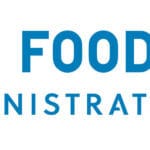
The two primary agencies responsible for overseeing food safety announced this week that they’ve signed a formal agreement to work more closely in the future.
The agreement identifies three main areas where the agencies will increase their coordination, at least for now:
Dual-jurisdiction food facilities
Currently many facilities are subject to regulatory requirements of both agencies, for example, a canned soup factory that produces both chicken noodle soup (USDA) and tomato soup (FDA).
This may not be the case in the future. The agreement states:
“Jurisdiction over certain types of facilities may change due to the reinterpretation of policies. In the interest of regulatory efficiency and the effective execution of their respective responsibilities…USDA and FDA share the goals of identifying and potentially reducing the number of establishments subject to the dual regulatory requirements of USDA and FDA, bringing greater clarity and consistency to jurisdictional decisions under USDA and FDA’s respective authorities, including transition period, and decreasing unnecessary regulatory burdens.”
Produce safety
FSMA’s Produce Safety Rule gave the FDA new regulatory authority over farms. According to Politico, Agriculture Secretary Sonny Perdue said: “The FDA was given a lot of responsibilities on farm, and that’s not really in their core competencies; visiting farms can cause a lot of anxiety, so the relationship is important. We’re going to work together for the betterment of food safety.”
The agreement doesn’t provide details about what specifically may change.
Federal regulation of biotechnology products
Again, the details here aren’t fleshed out. The agreement simply says that the agencies “are committed to modernizing the Coordinated Framework for the Regulation of Biotechnology and the U.S. agricultural biotechnology regulatory system to develop efficient, science-based regulatory practices for products of biotechnology by working in partnership with other federal agencies on the corresponding National Strategy for Modernizing the Regulatory Systems for Biotechnology Products.”